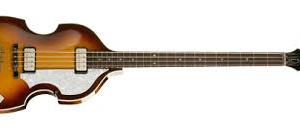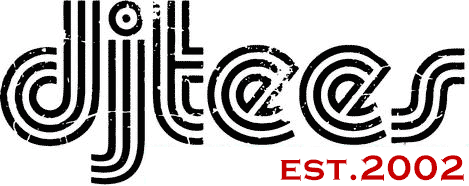Your Cart is empty
Subtotal£0.00
Your order details
Your Cart is empty

"Nobody wants to play bass," said Paul McCartney. "Or nobody did in those days. Bass was the thing that the fat boys got lumbered with and were asked to stand at the back and play. I definitely didn't want to do it but Stuart left, and I got lumbered with it."
After Stuart Sutcliffe left The Beatles in 1961 to pursue his art studies and a German girl, and the stand-in bass player Chas Newby returned to school, the remaining band members were all reluctant to pick up the bass. They argued, Paul lost, and spent April looking for an instrument. Due to a lack of funds, one of the great, iconic muso-instrument partnerships was born.
In the Steinway Musichaus, Paul saw the instrument with which he would be most closely associated throughout his career.
"There was this bass which was quite cheap," he said. "I couldn't afford a Fender; even then, they seemed to be about £100. All I could really afford was about £30, so for about £30 I found this Hofner violin bass. And to me it seemed like, because I was left-handed, it looked less daft because it was symmetrical. Didn't look as bad as a cutaway which was the wrong way. So I got into that."
He had good taste.
Walter Hofner had designed the Violin bass in 1959, using a revolutionary hollow body. Because it was hollow, it was not only light and easy to play, but it had a lovely, rich tone - it was semi-acoustic. And, of course, what better publicity campaign could there possibly be than having it played by the young Beatle? Brian Epstein struck a sponsorship deal that was mutually beneficial.
Paul used this 1961 model - the design came to be called a 'Cavern Bass' after the club - up to an including With The Beatles, and Hofner then gave him a new 1963 model. The 1963 is the one you generally see him playing: it has a white/pearl pickguard. He had the first one, the 1961. refinished in sunburst and used it as a backup; it was stolen from Abbey Road shortly after Let It Be - you can see him playing it in the footage at Twickenham and on the 1968 David Frost show recoding on 'Revolution'.
In 1965, Paul began to use a Rickenbacker 4001S but switched between that and the Hofner. Others who have used one include: Bruce Welch of The Shadows and Hugh McDonald, the de facto but unofficial bass player in Bon Jovi who credits Paul as his biggest influence. Dennis Dunaway, Alice Cooper's bassist, is another who has used a Hofner. Larry Knechtel of Bread, a great session muso who played piano on 'Bridge Over Troubled Water', also used a Hofner Violin for bass duties. Captain Sensible of The Dammed has also been a fan.
Mark Hudson, who wrote hits for Aerosmith and produced Ringo Starr for years, played a Hofner 1965 Violin Bass - in tribute to his Beatle hero. He jokes that seeing The Beatles play in 1965: "Was probably my first and only homosexual experience. It was my lust for loving what they were doing and wanting to be a part of that. I just saw them having so much fun." He paid tribute with his choice of instrument.
Bob Daisley, bassist for Blizzard Of Ozz, also used the Violin bass. He describes buying one in the mid Seventies:
"I had always wanted the Hofner and I saw one in Orange Music in London; it was about £90. It turned out it was the 1963 Beatle bass, which was the most sought-after model as it was the one his Lordship used - McCartney. As soon as I tried it, I just felt right."
Many years after The Beatles, Paul dug out the Hofner for the recording of 'My Brave Face' from 1987's Flowers In The Dirt. He recalls:
"When we came to record it, he (Elvis Costello, co-writer of the song) said: 'What about your Beatles bass, the Hofner bass?' I said I can try it, but it's not very good about keeping in tune, which it isn't, I'd got it a long time ago. So I'd given up recording with it in favor of more modern instruments.
But he said: 'Oh, I love the sound of it, come on let's try it!" So I got it out - and it recorded great. It has got a lovely tone for a little bass."
We will send you an email to reset your password.

